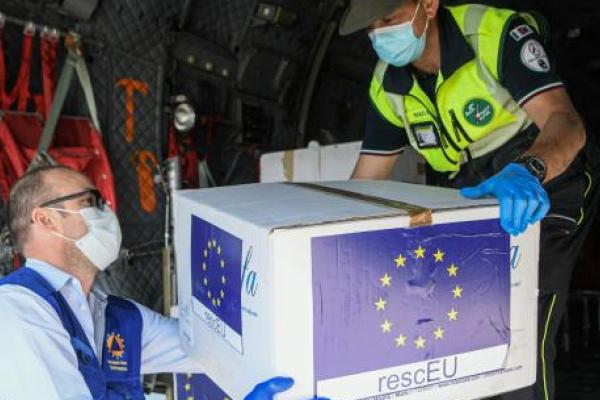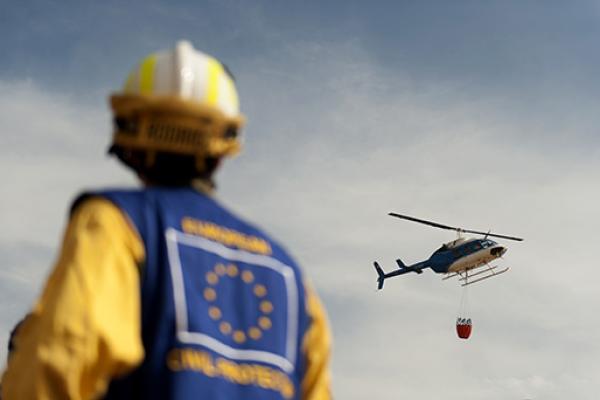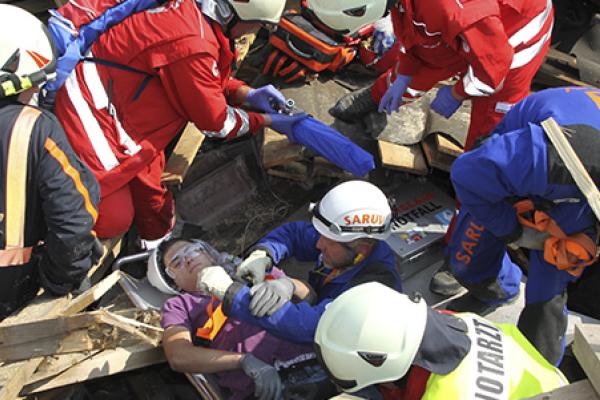
Today, the European Commission published the results of an opinion survey showing that the majority of EU citizens believe need more information to prepare for disasters and emergencies. Furthermore, the responses reveal citizens feel mostly exposed to risks linked to the impact of climate change but also security and social risks.
The recent Special Eurobarometer survey asked people in the 27 Member States about their perceived exposure to disaster risks, their level of knowledge and the sources they use to learn about disaster risks. The survey also asked people how well they are prepared for disasters and how much they trust emergency services and authorities.
People in 17 Member States feel most exposed to extreme weather events, such as storms, droughts, and heatwaves. Respondents feel most exposed to wildfires in Portugal and Cyprus, and to floods in Bulgaria. The responses were notably different in Sweden, Denmark, and Czechia where cybersecurity threats top the list. In Germany political or geopolitical tensions, in Estonia critical infrastructure disruptions and in Finland human health emergencies are on the top of the list for perceived personal exposure.
At EU level, almost 2/3 of respondents said that they need more information to prepare for disasters and emergencies. Moreover, more than 1/3 of citizens said they have difficulties to find relevant information from public authorities and emergency services.
The survey also shows that almost four in ten people do not have the time or financial resources to prepare for disasters or emergencies.
EU citizens also confirmed they trust emergency services to handle disaster situations and provide information and alerts. At the same time, they say that better preparation will increase their individual resilience.
Regarding the role of communities, the survey reveals that people largely rely on family members and friends to cope with a disaster, even more than on emergency services, NGOs, and local authorities or government agencies. Almost 2/3 of EU citizens state that they have never engaged in voluntary work to support emergency responder organisations or community-based initiatives to increase disaster resilience, while only 7% of them is currently engaged in the same type of work.
Commissioner for Crisis Management, Janez Lenarčič, said: "A risk-aware and prepared population is a crucial component of disaster resilience. We need bearing in mind various hazards and build preparedness and resilience of our society accordingly. This will help people to be better prepared for the risks they may face. A multi-hazard approach will contribute to strengthening personal preparedness, and people can continue to count on emergency services. The recently conducted survey is providing us with a valuable reference of the level of disaster risk awareness of Europeans and will contribute to EU’s work towards better preparedness of our societies."
Background
The EU has several tools at its disposal to deal with emergencies and catastrophes.
The EU Civil Protection Mechanism strengthens cooperation between the 27 EU countries and 10 Participating States (Iceland, Norway, Serbia, North Macedonia, Montenegro, Türkiye, Bosnia and Herzegovina, Albania, Moldova and Ukraine) on civil protection to improve prevention, preparedness, and response to disasters.
When an emergency overwhelms the response capabilities of a country in Europe and beyond, it can request assistance through the Mechanism. The European Commission plays a key role in coordinating the disaster response worldwide. Since its inception in 2001, the EU Civil Protection Mechanism has been activated for more than 600 emergencies and crises inside and outside the EU.
In February 2023, the European Commission adopted a Recommendation and a Communication to establish common goals to boost disaster resilience in the areas of civil protection. This includes to significantly increase, by 2030, the level of disaster risk awareness and preparedness of the population of the Union in each of the Member States. The European disaster resilience goals aim to improve the capacity of the EU, its Member States and Participating States to the EU Civil Protection Mechanism to anticipate and better withstand the effects of future major disasters and emergencies.
Details
- Publication date
- 30 September 2024
- Author
- Directorate-General for European Civil Protection and Humanitarian Aid Operations (ECHO)



